|
Time Cycles Aging
The Common Vein
Ashley Davidoff Copyright 2011
Introduction
“Researchers now propose that oxidation processes are one cause of cellular aging. Put less prosaically, we may all be rusting.”
John Silberner American Science Journalist 1986
“Eventually the process of aging is unlikely to be simple, should be understandable. Hopefully some of its processes can be slowed down or avoided. In fact, in the next century, we shall have to tackle the question of the preferred form of death”
Francis Crick British biophysicist Geneticist 1986-
“…drew a dial from his poke,
And, looking on it with lack-lustre eye,
Says very wisely, “It is ten o’clock;
Thus we may see, how the world wags;
‘Tis but an hour ago since it was nine;
And after one hour more ’twill be eleven;
And so, from hour to hour, we ripe and ripe,
And then, from hour to hour, we rot and rot;
And thereby hangs a tale.”
Shakespeare As You Like It II.vii.21-28
Birth, growth, degeneration and death. From the moment the single cell of the sperm meets the single cell of the egg the clock starts ticking for the new being. The early intrauterine days are spent at an accelerating and dizzying speed as one cell divides into two and two to four and geometrically onward. By week 4-5 brain and cardiac activity have started, and by weeks 6-8 the muscles are developed. In the first 8 weeks the mass of the embryo has increased 500 times and it is about an inch long. The end of 8 weeks marks the end of the embryonic phase. At this point all the organs are formed. The next phase is called the fetal stage; ending at 40 weeks, it involves growth and maturation.
The next phase is birth. It is all growth from here, through the four weeks of neonatal life, and then on to infancy, childhood and adulthood. In early adulthood (late teens to mid twenties), the human body is at its physical peak. Brain power, although not experience, peaks at about age 40.
The overall size of structures increases with time from infancy to early adulthood. In the later adult period, structures begin to shrink or atrophy. Size changes are sometimes not linear. At birth, the baby’s head accounts for 34% of height, while in the adult it is only 13% (McMahon). The adrenal gland in the fetus is extremely large, and is approximately twice the size of the fetal kidney by mid gestation. At birth the glands constitute .2% of body weight which is 20 times their relative size in the adult. (Hamilton) There is rapid decrease in size of the adrenals after birth due to atrophy of the fetal zone, so that by two weeks of age 30% of the weight is lost. Subsequent slow decreases in size, ends with complete disappearance of the fetal zone in the first year of life. The head of the pancreas is relatively small compared to the tail in the young adult, while in the older adult the head is relatively larger.
With atrophy in the aging adult, tissue and organs lose mass. Tissues become less elastic and stiffer. The skin and muscles sag, and muscle strength decreases. The organs most affected by aging are the brain (memory loss) lungs and heart. In an average lifetime, the heart beats more than two and a half billion times. This number is inconceivable. It is little wonder that changes of wear and tear do not take place earlier. With time, the power of the pump diminishes, atherosclerotic disease is inevitable, arrhythmias like atrial fibrillation evolve, and blood pressure rises. The brain and spinal cord lose nerve cells and mass and vision, hearing, and memory become impaired. Degenerative joint disease, scoliosis, osteoporosis, and tremors are all part of the aging process.
Children are unique and require specialized care by pediatricians. Structure and function progress so rapidly that milestones need to be charted not only for height and weight but also for intellectual, emotional and social aspects. Early departures from the normal developmental curve need to be addressed quickly, and effective intervention instituted in a timely manner. Issues such as vaccination and nutrition are also time sensitive. “A stitch in time saves nine” is extremely relevant in all populations but is profoundly prudent in pediatrics.
On the other end of the spectrum, the aging patient also requires subspecialty care and geriatric medicine is quickly evolving as a much needed subspecialty. This population is growing in number as people are living longer, and wear and tear is inevitable. Alzheimer’s disease is a huge societal issue, with ramifications for the patient, family and society. The approach to this group requires a thought and respect. Preventing falls, strengthening bones, and maintaining connections with society and family, are a few of the many issues facing the elderly.
At the cellular level a variety of time related events are occurring as well. As cells age they tend to become less able to divide and pigments and lipid material accumulate within the cytoplasm.
However cells also live on a different biological clock, and their lifespan is individualized. The cells with the shortest lifespan are the basophils, eosinophils and neutrophils (white cell lines) which survive from 12 hours to three days. Gastric mucosal cells, and sperm cells, have a span of about 2 days, colonic mucosal cells about 3-4days, small bowel cells about 1 week, platelets 10 days, skin cells 2-4 weeks, red cells 120 days, macrophages and endothelial cells months to years, and bone cells live 25-30 years. The normal process of cell growth and cell death is orderly. There is a time to live and a time to die. In cancer the orderly process of new cell growth and cell death is altered. There is uncontrolled cell division and growth, and reduction in cell death.
Cyclical changes in the female of reproductive age are another example how time and structure interrelate. The internal female biological clock, corresponding closely to the cycle of the moon, with an approximately 28 day cycle, matures the endometrium and an ovum in preparation for fertilization. The thickness and makeup of the endometrial changes are recognized by ultrasound. Mittelschmerz – middle of the month pain- together with a rise in temperature herald ovulation. The dominant follicle of the month can be recognized by ultrasound as the largest cyst (usually 1-2cm) that will yield the ovum of the month.
Principles
Biological Time
|
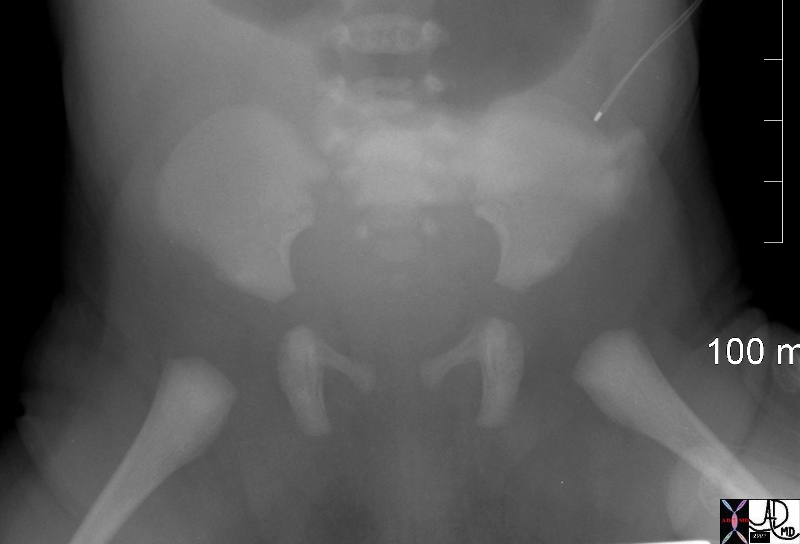 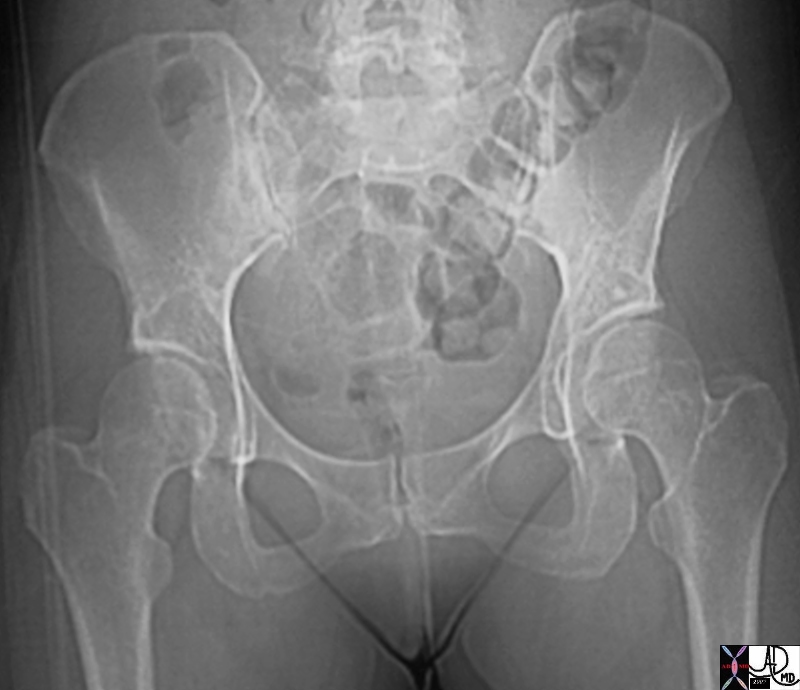
Newborn Pelvis – Adult Pelvis |
|
72111b01.800 bone pelvis innominate bone iliac bone ischium pubic bone femur newborn growth sacrum lumbar vertebra normal Davidoff MD
24923b01 pelvis bone normal iliac crest ischium pubic symphisis pubic bone hip femur femoral head femoral neck ischium ischial tuberosity greater trochanter lesser trochanter normal anatomy CTscan scout plain film Davidoff MD |
|

Close to a New Beginning |
| 13275b01i01e12u08 Davidoff oneness |
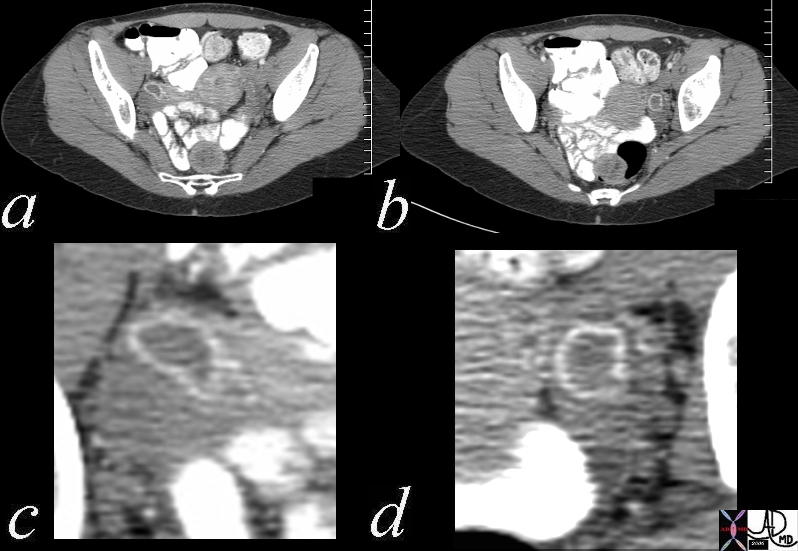
Ovulation |
| 46693c01 ovary ovaries pelvis bilateral ring of fire corpus luteum cysts normal physiology potential for twins anatomy applied biology Davidoff MD |
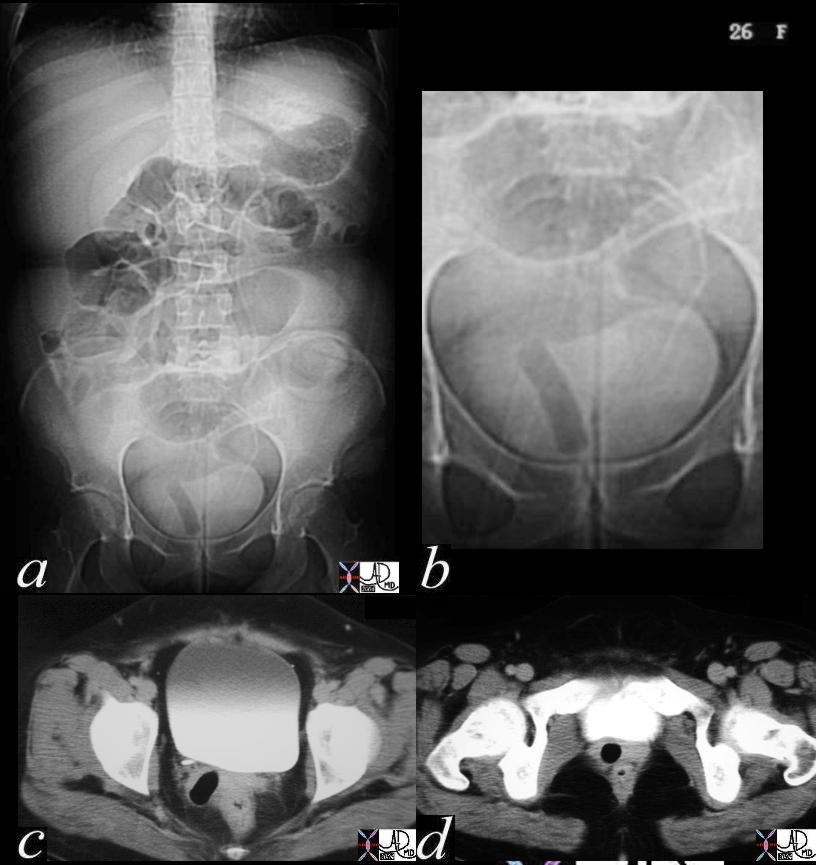
Menses |
| tampon 39912c02 |
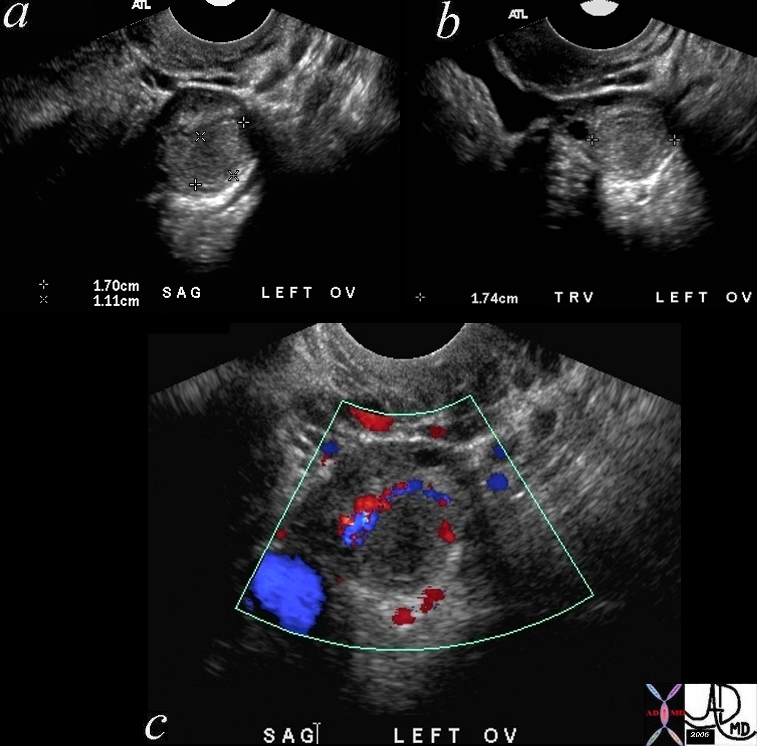
Corpus Luteum Cyst |
| 47033c01 ovary fx hemorrhagic corpus luteum cyst ring of fire physiology anatomy normal biology ime cycle USscan Davidoff MD |
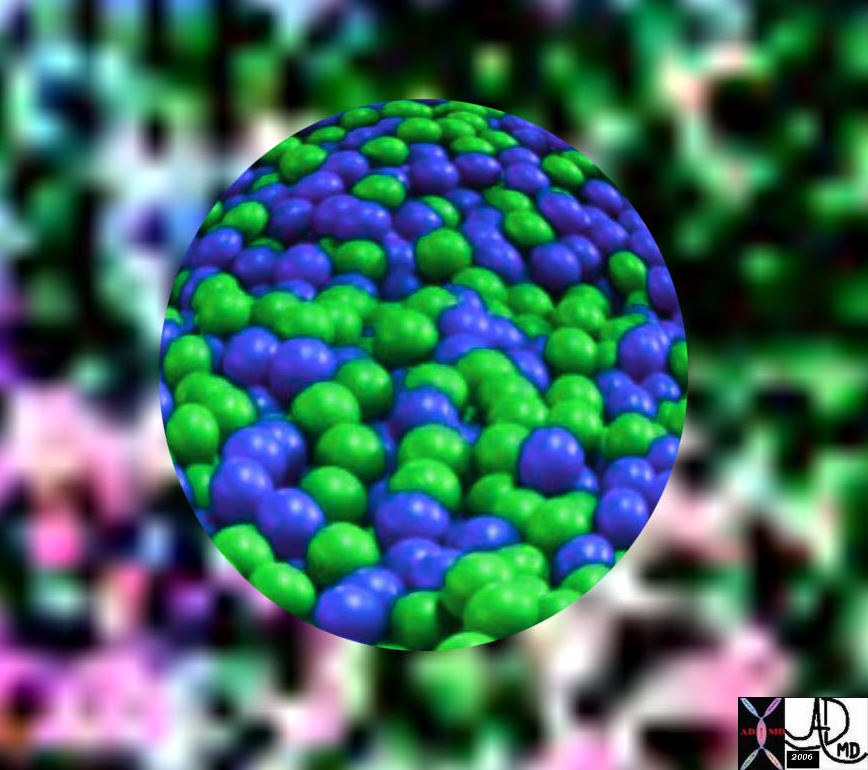
Division after Division Multiplication to a Unit |
|
Units to unity – a blastocyst is formed
13275b01i01e01b03 Davidoff oneness
|

A fetus evolves |
| 13275b01i05e01 Davidoff oneness |
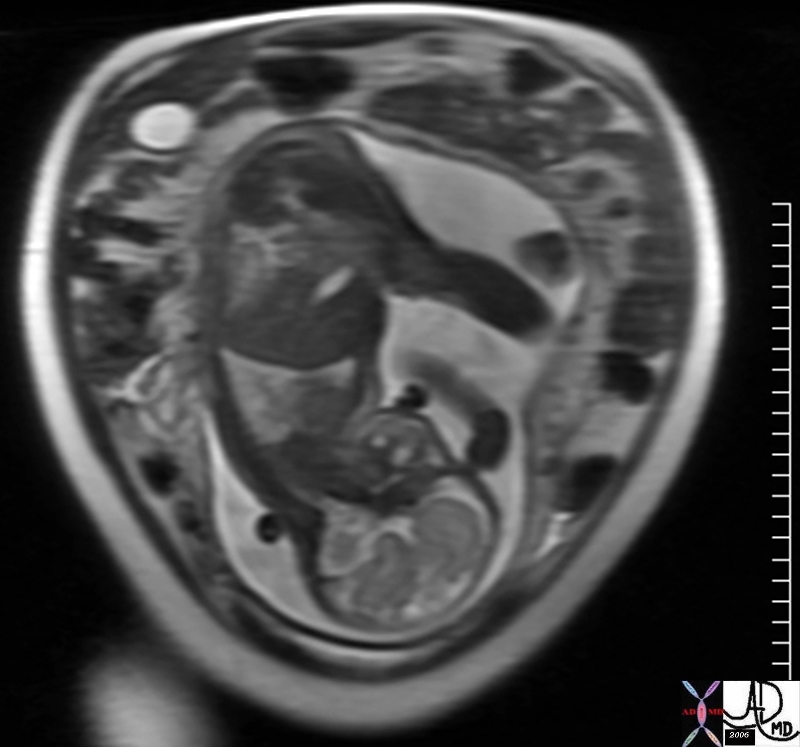
Fetus Develops |
| 46704 abdomen pregnancy fetus baby head brain lungs amniotic cavity amniotic fluid normal anatomy physiology MRI T2 weighted Davidoff MD |
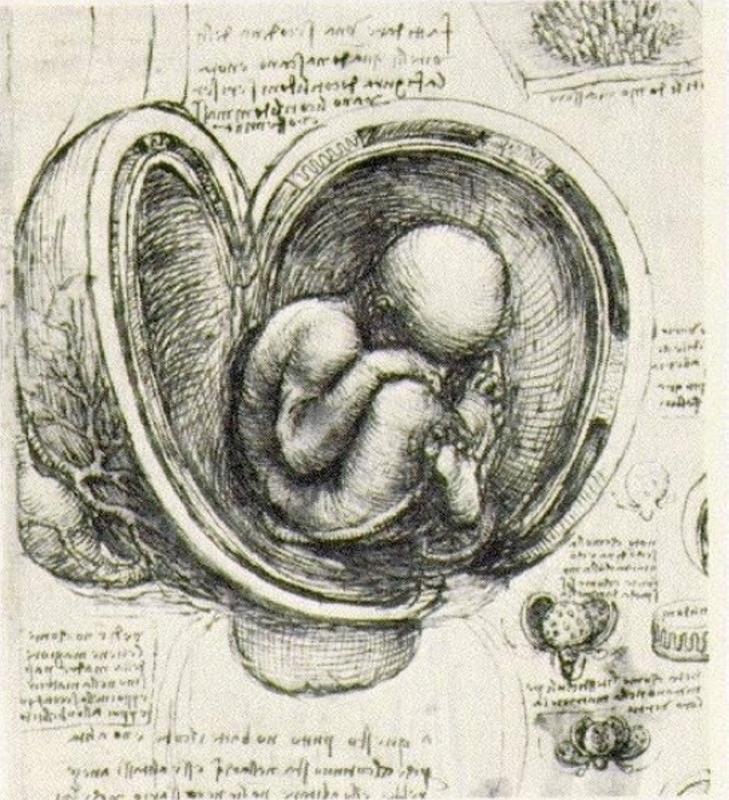
Fetus |
| 51902 da Vinci fetus age time structure shape amniotic cavity umbilicus uterus normal anatomy physiology The Common Vein TCV |
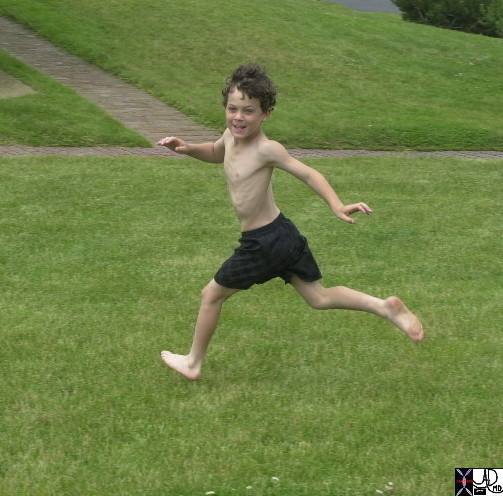
Youth Health |
| 64163b01 health youth age time physiology boy running happy davidoff photgraphy Davidoff MD |
|
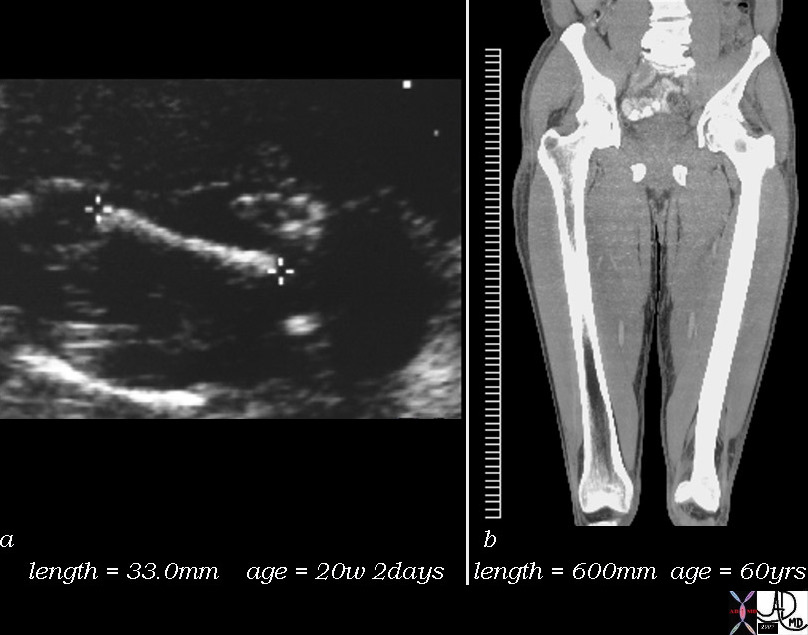
Femur – From Fetus to Adulthood |
| 48395c01 bone femur femoral length fetus adult age aaging time growth normal Davidoff MD |
Aging
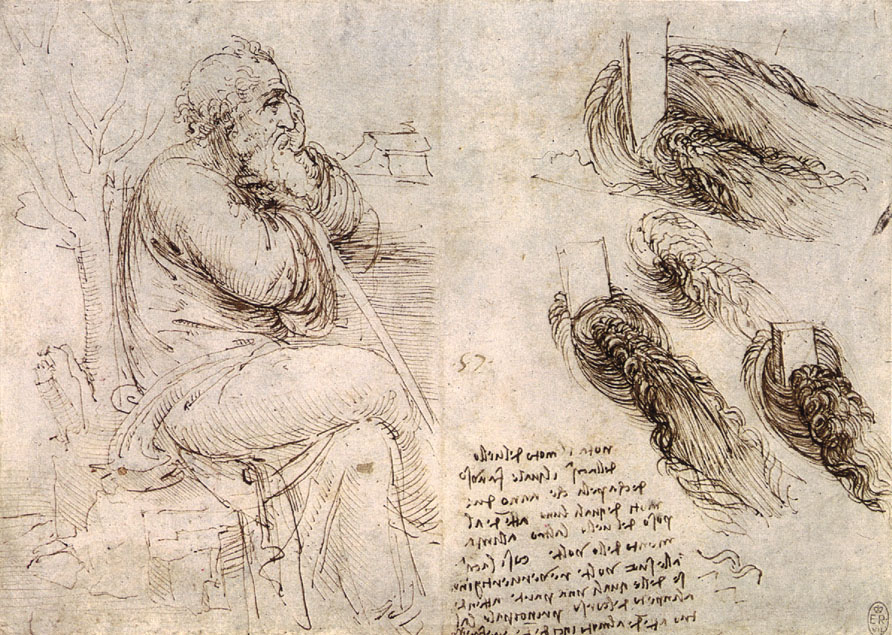
da Vinci and an Old MAn |
|
54864
Courtesy http://www.visi.com/~reuteler/leonardo.html Old Man with Water Studies, c. 1513 Leonardo da Vinci man aging elderly chin fx protruding teeth edentulous nose fx hooked mouth lips fx down turned skin fx wrinkled muscle fx wasting hair fx loss back spine fx lordosis anatomy drawing
|
Aging Process
Nervous System
|
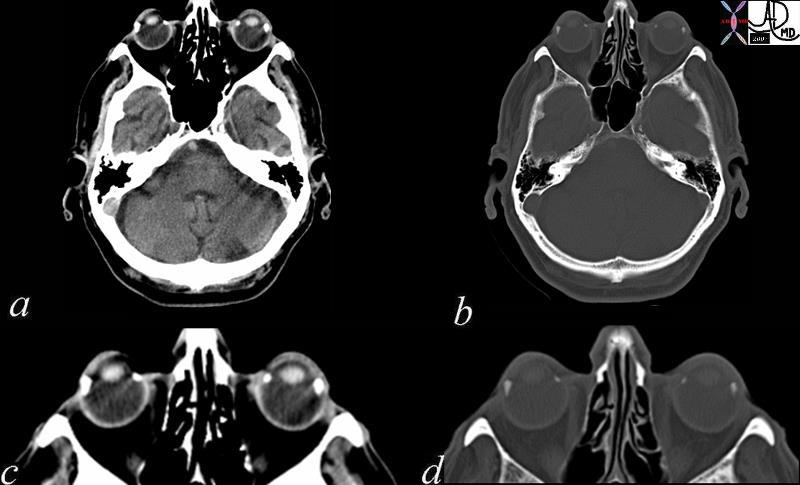
Aging – Calcification of the Ciliary Body and Lens – Cause of Presbyopia |
| 71439c01 eye lens ciliary muscle ciliary body fx calcifiied time normal aging brings with it calcification of the ciliary body muscle and lens causing presbyopia CTscan Davidoff MD |
Cardiovascular System
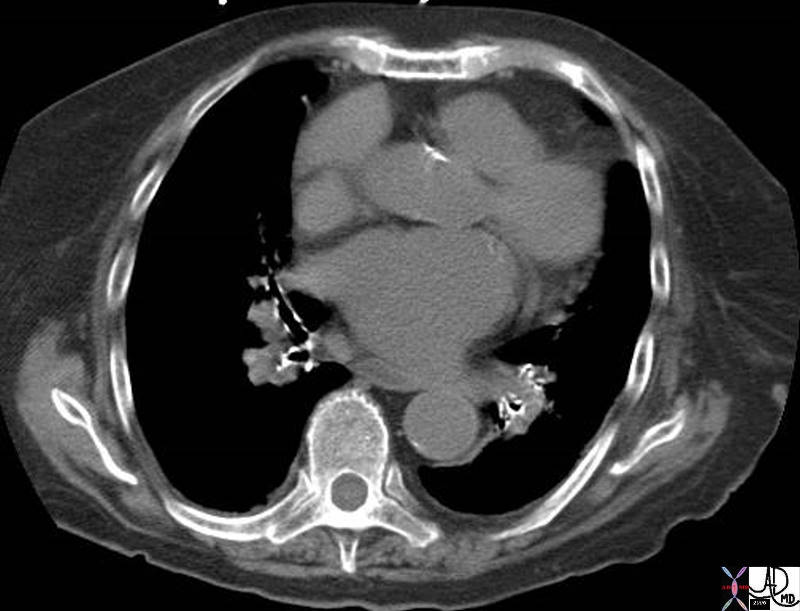
Calcification and Aging |
| 42385 lung bronchus bronchi age time calcification calcified aortic annulus aorta aortic sclerosis CTscan Davidoff MD |
Musculoskeletal System
|
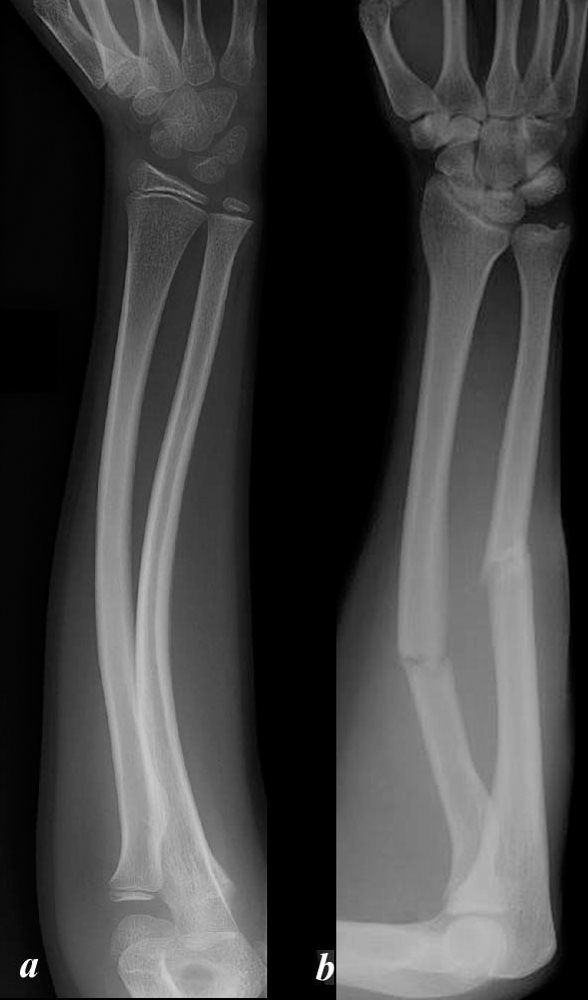
101293.8bc01
|
| 101293.8bc01 This set of X-rays in the antero-posterior (A-P) projection shows the difference of the effect of a lateral force on the mid shafts of a pliable pediatric radius and ulna (a) and on the more brittle mature bones of a 19 year patient (b). In the pediatric bones they respond to the force by a bowing deformity without obvious macrofracture. This is a type of greenstick fracture. In the adult the bone shows transverse fracture of the radius and ulna. CODE arm bone shaft diaphyses radius ulna fracture bowing greenstick transverse simple trauma shape size age time pliable brittle anatomic alignment bone to bone contact pathophysiology classification X-ray Plain film Courtesy Ashley Davidoff Copyright 2011 |
|
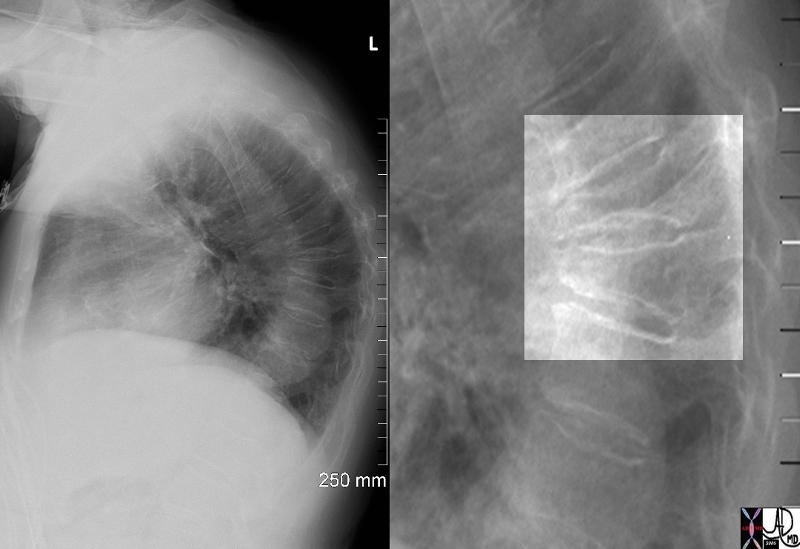
Wedge Compression Fractures |
| 47368c01 spine bone thoracic spine ospeopenia osteoporosis fx wedge compression fractures shape mechanical forces kyphosis CXR plain film X-ray Davidoff MD |
Skin
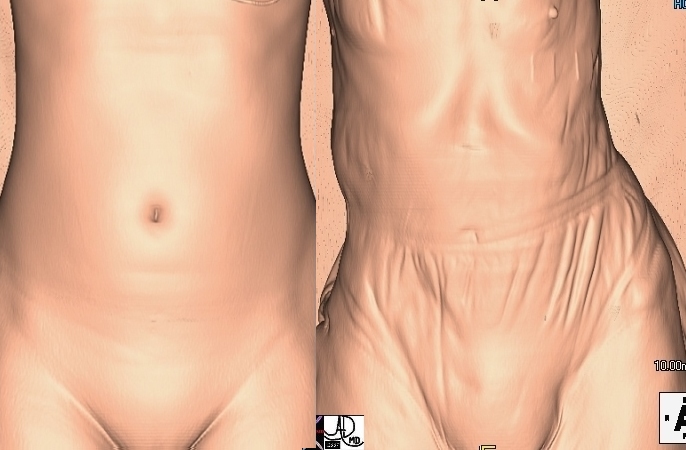
Loss of Elasticity |
| 49609c03 abdomen health disease young old time cycle elastic elasticity order disorder Davidoff MD 49609c02 |
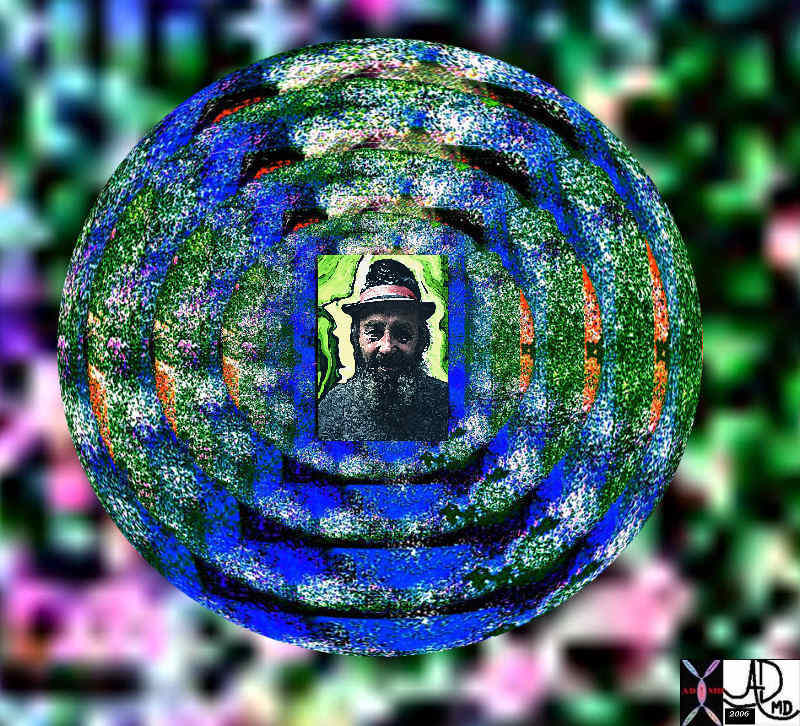
Aging |
| 13275b02i03s01.800b01 Davidoff Oneness |
Time in Disease
Hemorhhage
Intracranial
CT
|
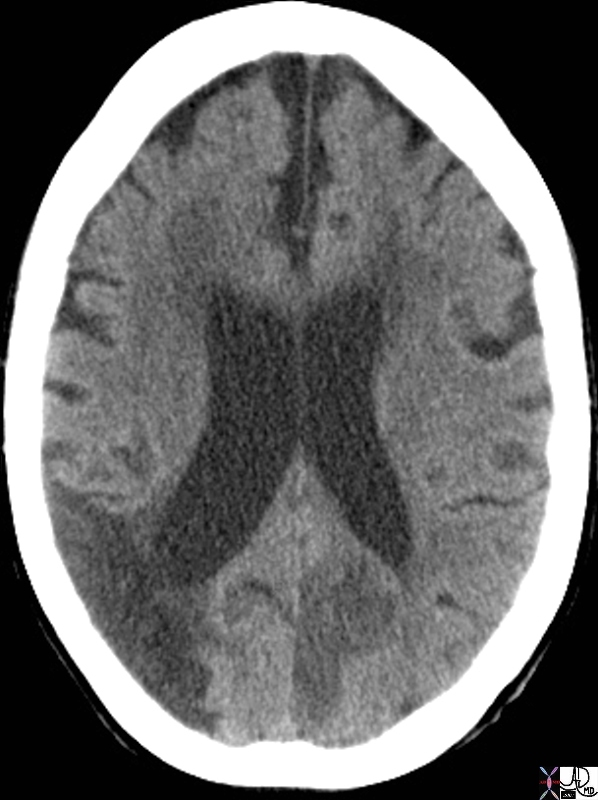
Acute and Chronic by CTscan |
| 71245 brain cerebrum occipital lobe parietal lobe chronic infarction acute infarction hypodensity relative density CTscan Davidoff MD |
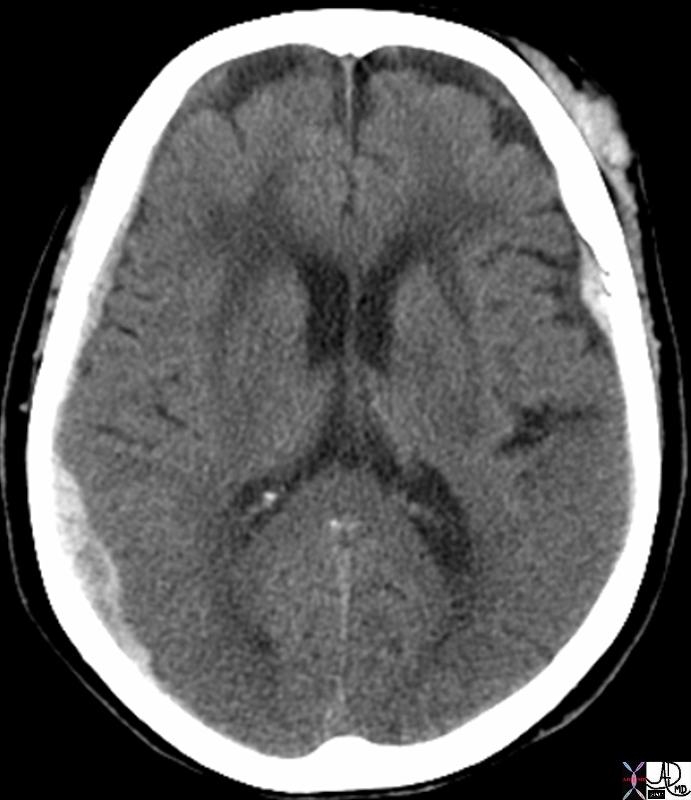
Bilateral Acute Subdural Hematomas |
| 70000.800 skin brain cerebrum cerebral subcutaneous subdural contra coup fx acute blood fx density dense subdural hematoma subcutaneous hematoma trauma radiologists and detectives CTscan Davidoff MD |
|
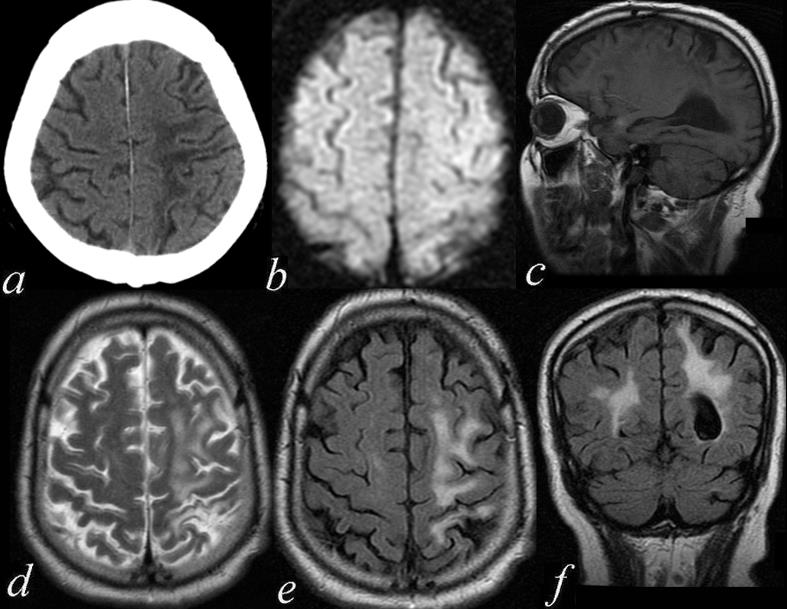
Chronic Ischemic Change in the left MCA territory – Fronto Parietal region |
| 71411c01.800 74 male with mental status changes brain cerebrum cerebral fx gliosis volume loss enlargement lateral ventricle on left encephalomalacia dx superior left frontal lobe parietal lobe in the territory of the left MCA left middle cerebral artery a= CTscan b = DWI – negative c= T1 weighted image d= T2 weighted image e = FLAIR f = FLAIR coronal MRI Davidoff MD |
|
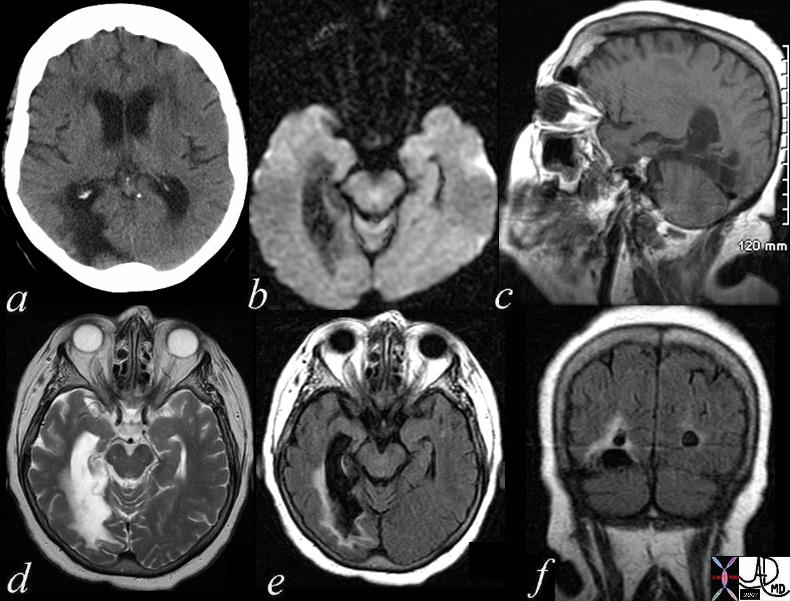
Chronic Infarction Right Temporal Lobe and Right Occipital Lobe |
| 71419c01.800 74 female with h/o ataxia incontinence memory loss brain cerebrum right PCA territory right posterior cerebral artery posteromedial aspect of right temporal lobe medial and inferior aspect of the right occipital lobe gliosis volume loss atrophy ex vacuo changes dilatation of temporal and occipital horns of the lateral ventricles dx old chronic infarction CTscan MRI a = Ctscan b = DWI c= sagittal T1 weighted d – T2 weighted e = FLAIR f = FLAIR coronal Davidoff MD |
(change from HYPER- to HYPO- dense over time)
Initially – 60 – 90 Hounsfield Units (HU)
2 days – 70 HU
3 weeks – 30 HU
>5 weeks – <30 HU
20% show enhancing rim at 2-6 weeks
Reference Medpix USUHS
MRI
(T1/T2: II, ID, BD, BB, DD (I-iso, D-dark, B-bright)
Hyperacute – minutes to hours (DD => II)
– T1WI – hematoma hypointense (deoxyHb) => isointense
– T2WI – hematoma hypointense (deoxyHb) => isointense
Acute – 0-2 days (ID => BD)
– deoxyhemoglobin in intact RBCs with surrounding edema
– T1WI – hematoma isointense, low signal intensity (SI) edema
– T2WI – hematoma decreased SI at center, high SI edema
Subacute – 2-14 days (BB)
– deoxyhemoglobin changes to methemoglobin from outer to inner
– T1WI – outer core shows increased SI
– T2WI – Outer core shows increased SI due to shortened T1, longer T2
Chronic – 14 days (BB => DD)
– hemosiderin laden macrophages at periphery
– T1WI – inner core now also increased SI, rim has low SI
– T2WI – inner core also has increased SI, rim has low SI
Chronic – months later (DD)
– hemosiderin laden macrophages at periphery
– T1WI – mostly iso-/decreased SI, rim has lower SI
– T2WI – markedly hypointense rim has low SI – “blooms” with greater T2-weighting
Reference Medpix USUHS
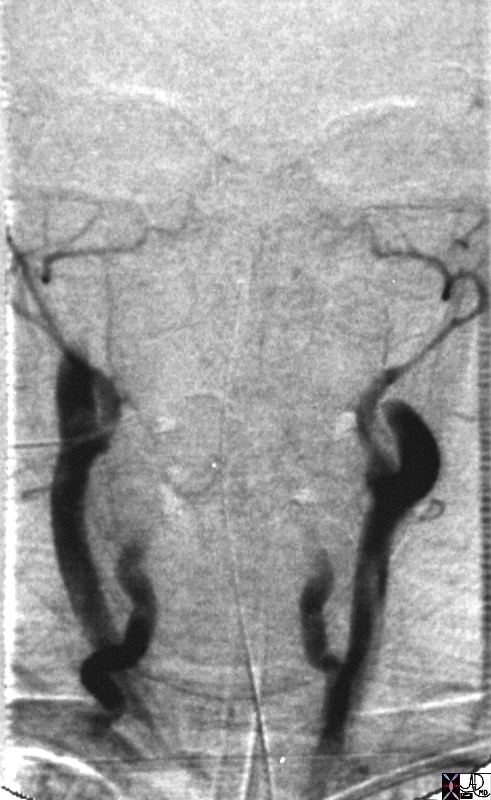
Death |
| 22772 head brain artey internal carotid external carotid fx occluded dx brain death dx brain dead angiogram angiography Davidoff MD |

Returning |
| 13275b05i02.800b03 Evolving knowledge man framework organization TCV Davidoff Oneness |
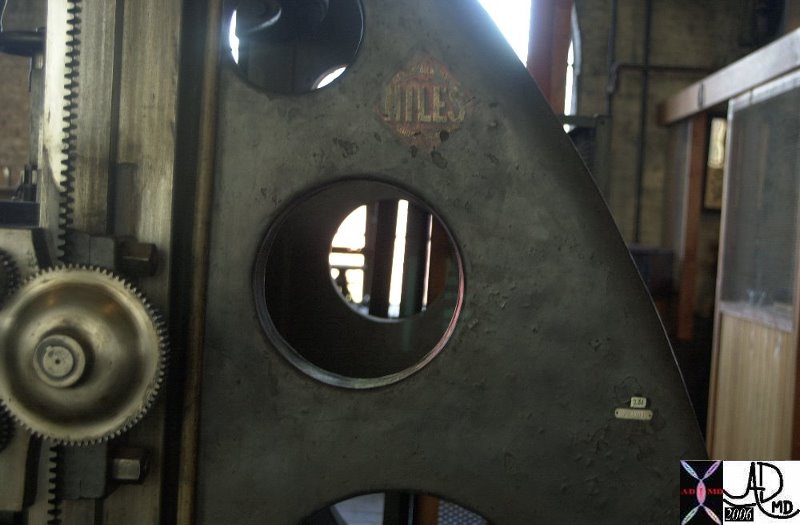
Circles and cycles |
| 67058 interesting accessory laboratory factory Edison New Jersey machinery Courtesy of Ashley Davidoff MD Davidoff photography Edison New Jersey |
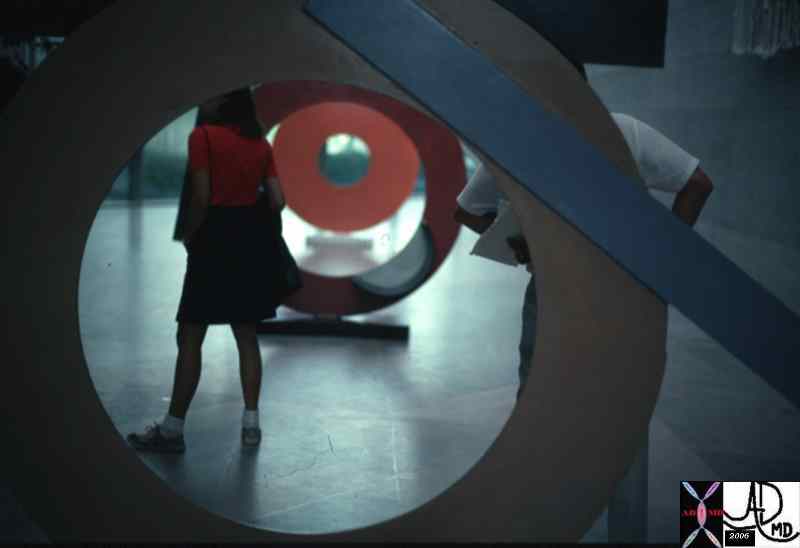
Cycles |
| Sculpture museum in Washington DC 10197.800 interesting accessory Courtesy of Ashley Davidoff MD Davidoff photography TCV time cycles |
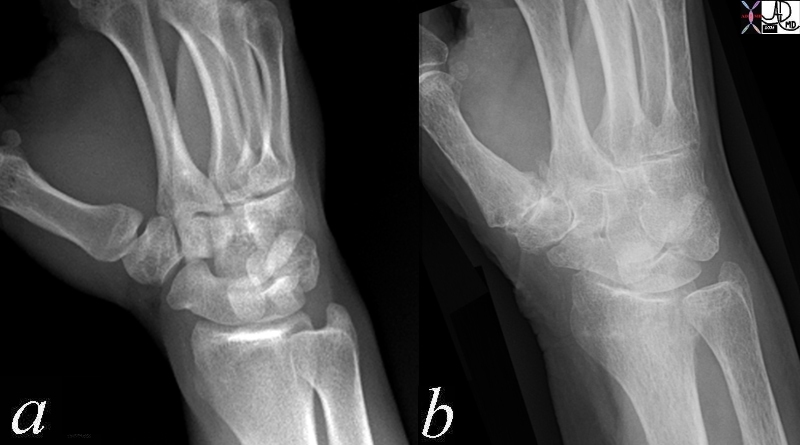
Wrath of Time |
| 46707c01 bone wrist carpals thumb degenerative changes osteoarthritis osteopenia age time normal vs abnormal X-ray plain film Davidoff MD |
Using Time to Make A Diagnosis
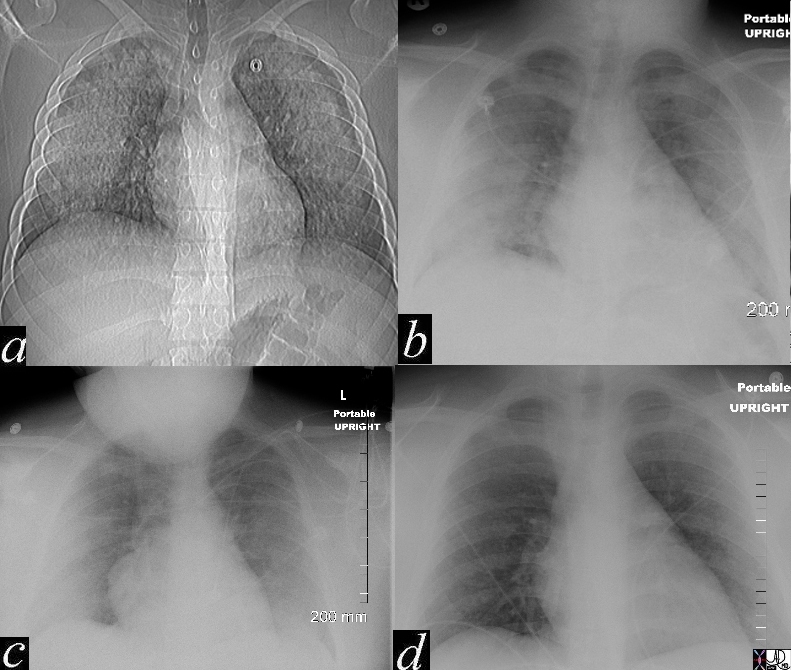
Rapid Clearing of Infiltrates – Acute Pulmonary Hemorrhage – Wegener’s Granulomatois
|
| 47711c02 20 year old male presents with hemoptysis and renal failure chest lungs upper lobes lower lobes infiltrates acinar infiltrates fluffy infiltrates almost symmetrical fx bilateral pulmonary infiltrates renal biopsy dx Wegener’s granulomatosis with pulmonary hemorrhage blood character CTscan Daviddoff MD 47711c01 |
|
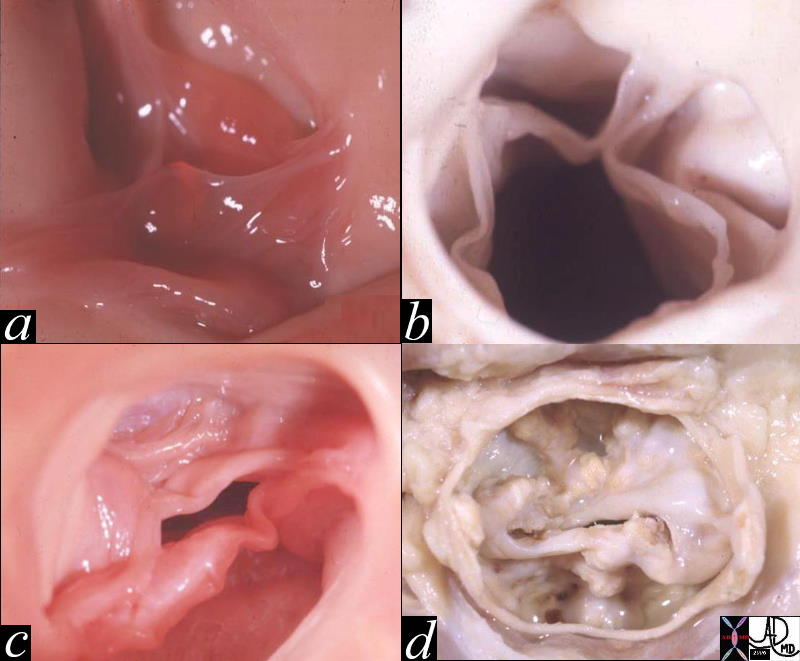
Normal and Thickened Aortic Valve over Time |
| 07953c02 heart cardiac aorta aortic valve fx normal fx thickened fx bicuspid aortic valve fx calcified fx calcification fusion of the intercoronary commisures grossanatomy grosspathology Davidoff MD b Courtesy Henri Cuenoid MD |
Malignant Behaviour – Doubling Time
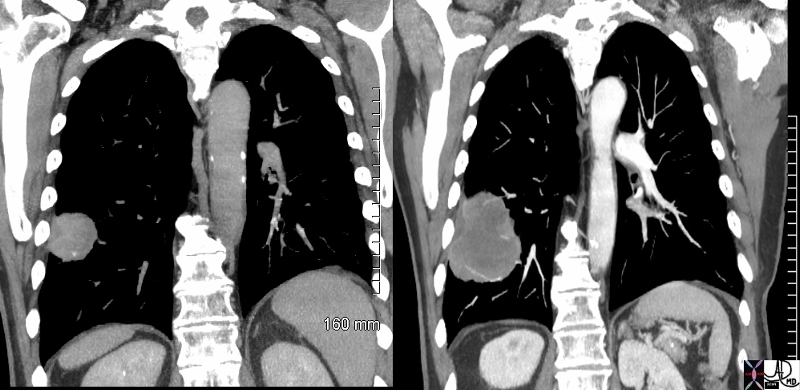
Growth of a lung lesion over 7 months |
| 48380c01 chest lung fx mass fx growth in 7 months dx metastattic squamous cell carcinoma head and neck primary primary larynx metastasis time size CTscan Davidoff MD 48383c01 48380c01 48383c02 malignant malignancy |
|

Cycle of the Berry |
| 84612p.800 berries berry cycle time ripe mature dead death youth unripe water droplets Davidoff photography Davidoff MD |
|
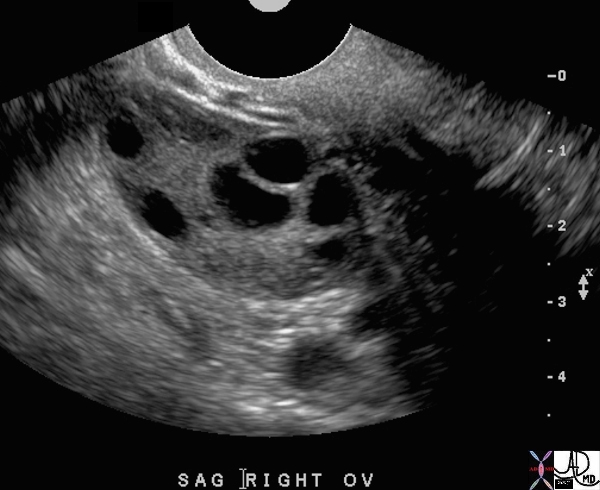
Follicles in a Reproductive Female – Cyclical Phases -Size and Time |
| 71689 ovary follicles normal anatomy function physiology TCV Applied Biology Cycle time USscan Davidoff MD |
|
































